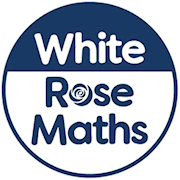Mathematics
Intent
At St. Gerard’s Catholic School, we strive towards ensuring that all our pupils develop a positive attitude towards Mathematics and we aim to equip all children with the skills and resilience they need to access the three aspects of Mathematics.
We recognise the importance of Mathematics in everyday life and we aim to equip all pupils with the skills and confidence to solve a range of problems through fluency with numbers and mathematical reasoning. Children are encouraged to see the mathematics that surrounds them every day and enjoy developing vital life skills in this subject.
The national curriculum for mathematics aims to ensure that all pupils:
- To ensure that all pupils become fluent in the fundamentals of mathematics, including through varied and frequent practice with increasingly complex problems over time, so that pupils develop conceptual understanding and the ability to recall and apply knowledge rapidly and accurately.
- To ensure that all pupils reason mathematically by following a line of enquiry, conjecturing relationships and generalisations, and developing an argument, justification or proof using mathematical language.
- To ensure that all pupils can solve problems by applying their mathematics to a variety of routine and non-routine problems with increasing sophistication, including breaking down problems into a series of simpler steps and persevering in seeking solutions.
Implementation
At St. Gerard’s Catholic Primary School, we follow a mastery approach to learning. Children are taught in mixed ability groupings, and all children access the same curriculum.
We use the ‘White Rose Maths’ curriculum as the foundations for our teaching. This is a cumulative curriculum, so that once a topic is covered it is revisited and built upon many times in many contexts across the learners’ journey through the school.
Teachers begin lessons by revising and reviewing knowledge of concepts and skills to ensure they are embedded. Children are introduced to new concepts in small, logical steps. In order to tailor our teaching to our children, staff are equipped with a range of resources that support our curriculum. Through carefully planned activities, children are encouraged to work mentally, observe patterns, make predictions and discuss relationships.

Where children have not yet mastered a concept, same day interventions and pre-teaching takes place to support learners. Where children are confident, they are challenged by deeper thinking questions allowing them to demonstrate full mastery of concepts. We do not move on through the curriculum until children have grasped the concepts taught.
As a school we use the CPA (Concrete, Pictorial, Abstract) approach to support our mastery curriculum. Children are taught to represent mathematical concepts in these three ways to both support and challenge their learning:
- Concrete – children can use concrete objects and manipulatives to help them understand and explain what they are doing.
- Pictorial – children then build on this concrete approach by using pictorial representations, which can then be used to reason and solve problems.
- Abstract – With the foundations firmly laid, children can move to an abstract approach using numbers and key concepts with confidence.
Where possible, links are made with other subjects across the curriculum as well as making connections outside of the classroom and to life experiences and enterprises, developing the children’s Cultural Capital.
Schemes of Learning
- Year 1 Maths Scheme of Learning
- Year 2 Maths Scheme of Learning
- Year 3 Maths Scheme of Learning
- Year 4 Maths Scheme of Learning
- Year 5 Maths Scheme of Learning
- Year 6 Maths Scheme of Learning
Also see our Progression in Calculations Policy on our Policies and Documents page.
Mathematical Fluency of Number Facts
Across the school we use KIRFs (Key Instant Recall Facts). These are year group specific number facts that aim to improve children’s fluency in maths by freeing up their working memory. These will change each half term and will be sent home as homework as well as being worked on in class.
Reception and KS1 teach to the NCTEM Mastering Number program, alongside White Rose. This is to ensure that all children have a strong understanding of numbers and their composition. This aims to support children by laying the foundations for Maths, which they will need as they progress through school. By Year 1, all children should be fluent in their number bonds to 20.
From Year 2, Children will begin learning their times tables. All children should be fluent by the end of year 4, in preparation for the Year 4 Multiplication Check. As a school we use a range of teaching methods to ensure children are secure in number facts up to 12×12 as well as daily TT Rockstar practise at home.


Impact
Children will become fluent in the fundamentals of mathematics. Through varied and frequent practice with increasingly complex problems over time, pupils will have the conceptual understanding and the ability to recall and apply knowledge rapidly and accurately.
- Children will be able to reason mathematically by following a line of enquiry, conjecturing relationships and generalisations, developing an argument, justification or proof using mathematical language.
- Children will solve problems by applying their mathematics in a variety of problems with increasing sophistication, including breaking down problems into a series of simpler steps and persevering to seek solutions.
- Quick recall of facts and procedures.
A mathematical concept or skill has been mastered when a child can show it in multiple ways, using the mathematical language to explain their ideas, and can independently apply the concept to new problems in unfamiliar situations.

